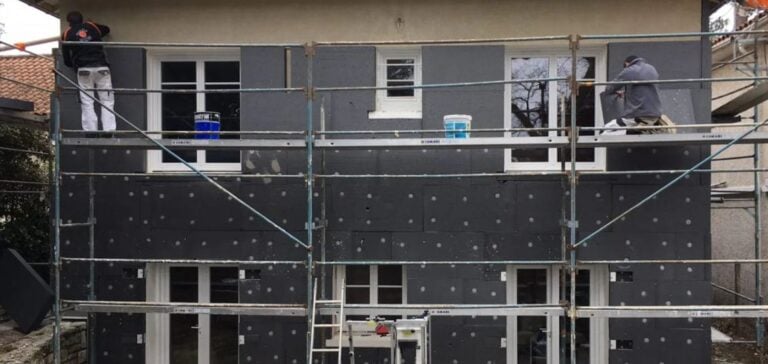A large-scale fraud operation exploiting MaPrimeRénov’ has been dismantled in France. This government program, launched in 2020, aims to encourage energy-efficient home renovations by subsidizing work such as thermal insulation, heat pump installation, or solar panel integration. Designed to simplify financial aid access for households, MaPrimeRénov’ also revealed loopholes exploited by criminals, resulting in financial damages totaling €27 million.
The case, disclosed by the Nanterre prosecutor’s office, exposed a structured network of seven companies led by an individual suspected of laundering €13 million personally. Victims, often from low-income or precarious households, were lured by promises of non-existent grants, leaving them with significant debts.
MaPrimeRénov’: A Critical Yet Vulnerable Program
MaPrimeRénov’ is a flagship public aid initiative in France’s energy policy. It finances up to 90% of renovation costs for low-income households. Accessible to all homeowners, the program aims to reduce greenhouse gas emissions and lower energy bills for families.
However, its accessibility and streamlined process have also made it susceptible to abuse. Fraudsters employed aggressive sales tactics to convince uninformed individuals to undertake expensive projects with the false promise of substantial subsidies. Once contracts were signed, the promised aid never materialized, leaving victims burdened with loans.
A Well-Orchestrated Trap
Investigators uncovered a fraudulent scheme involving sales representatives who operated under fake identities and used temporary phone numbers. They offered costly equipment installations, such as water heaters or heat pumps, with guarantees of significant grants covering most of the costs.
After the equipment was installed, victims discovered that the promised subsidies did not exist. Moreover, legal recourse was often impossible as the implicated companies dissolved after collecting the funds. Some victims were even forced to consider selling their homes to repay their debts.
Progress in the Investigation
Since 2020, the Nanterre prosecutor’s office has launched a judicial inquiry into organized money laundering, misuse of corporate assets, and fraud. To date, 386 complaints have been filed, and 78 victims have been interviewed. Several suspects have been charged, and the primary accused remains under electronic surveillance after six months in pre-trial detention.
Authorities continue to dismantle structures linked to this network with support from the financial investigation and research brigade. Investigations have also revealed sophisticated money-laundering mechanisms used to distribute the stolen funds among network participants.
Measures Under Consideration
To prevent such fraud in the future, the French government plans to enhance administrative controls and verification processes for service providers. Authorities are also urging individuals to rely on official platforms and remain vigilant against overly attractive offers.
While this scandal is primarily a French issue, it sends a strong international message: initiatives to accelerate energy transition must be accompanied by robust prevention mechanisms to ensure that critical public funds do not fall into the wrong hands.






















